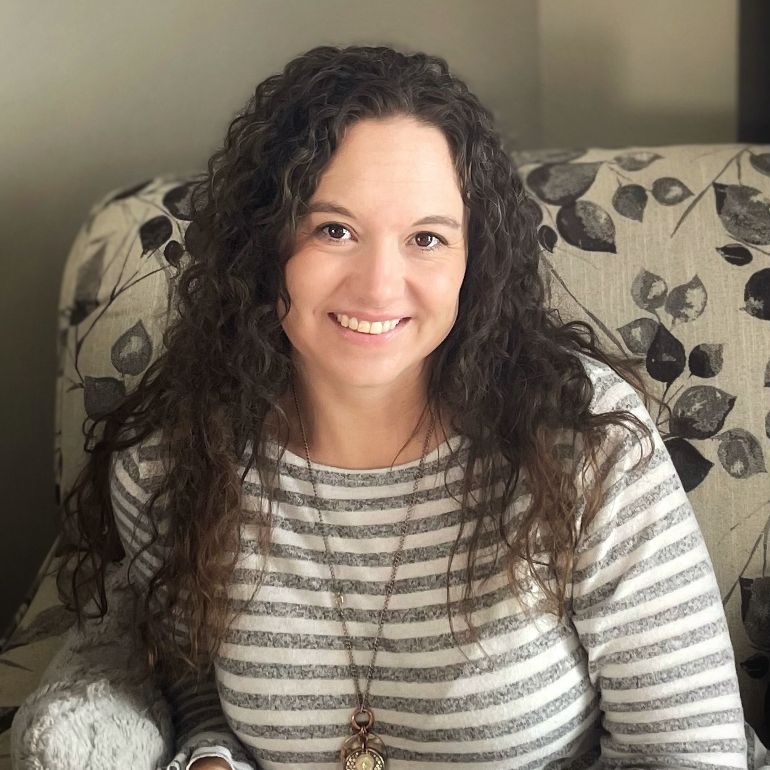What Is Sleep Restriction Therapy?
Sleep Restriction Therapy is a behavioral treatment that helps consolidate fragmented sleep by limiting time in bed to match actual sleep time. The goal is to improve sleep efficiency — the percentage of time spent asleep versus the time spent in bed — by building sleep pressure and reducing prolonged wakefulness at night.
Despite its name, SRT doesn’t deprive you of sleep. Instead, it resets your biological sleep drive through a structured process of sleep window regulation. Over time, the body learns to associate the bed with sleep, not wakefulness or frustration. This makes SRT one of the most effective tools in CBT-I (Cognitive Behavioral Therapy for Insomnia), the gold standard in behavioral sleep medicine.
What Conditions Does Sleep Restriction Therapy Help With?
SRT is widely used to treat chronic insomnia, whether it’s difficulty falling asleep, staying asleep, or waking too early. It also benefits those whose sleep problems are secondary to other health conditions. Conditions that respond well to SRT techniques include:
- Chronic insomnia (primary or secondary)
- Sleep-onset insomnia (trouble falling asleep)
- Sleep-maintenance insomnia (frequent nighttime awakenings)
- Early morning awakenings
- Low sleep efficiency (spending too much time in bed awake)
- Anxiety-related insomnia
- Depression-related sleep disturbances
- Insomnia related to chronic pain or medical conditions
- Difficulty sleeping despite medication use
If you’re spending more and more time in bed hoping for more sleep — and it’s only making things worse — Sleep Restriction Therapy can help restore balance and predictability to your nights.
Who Can Benefit from Sleep Restriction Therapy?
SRT therapy is effective for a wide range of individuals, especially those who:
- Have struggled with longstanding sleep problems
- Spend excessive time in bed hoping for more sleep but wake up exhausted
- Have become dependent on sleep medications and want to taper off safely
- Tried sleep hygiene tips (no screens, dark rooms, supplements) without meaningful improvement
- Suffer from hyperarousal, stress, or “racing mind” when trying to fall asleep
- Work irregular schedules (e.g., shift workers) and need help regulating circadian rhythms
- Are looking for non-pharmaceutical, evidence-based treatment that teaches real skills
Even individuals who feel they’ve “tried everything” often find success with Sleep Restriction Therapy when implemented under the guidance of a trained sleep therapist.
How Does Sleep Restriction Therapy Work?
The process begins with a thorough sleep assessment, typically using sleep logs or a diary over 1–2 weeks. Then:
- Your therapist calculates your average nightly actual sleep time.
- A restricted sleep window is created — for example, 5.5 hours — matching your real sleep, not total time in bed.
- You’re instructed to only go to bed during this window, creating stronger sleep pressure.
- Over time, as sleep efficiency improves (more of your time in bed is spent sleeping), the sleep window is gradually expanded.
- Consistency is key: you’ll maintain fixed wake times, even on weekends.
- Adjustments are made weekly based on logs, fatigue levels, and individual response.
Unlike sleep medications, which aim for instant relief, Sleep Restriction Therapy rebuilds your sleep system naturally— leading to sustainable, long-term improvement.
Is Sleep Restriction Therapy Safe?
Yes — when done under the guidance of a trained sleep therapist, SRT is both safe and highly effective. However, it's important to proceed with professional support, because:
- Daytime sleepiness is normal initially, especially during the first 1–2 weeks.
- Therapists monitor symptoms and adjust the plan to prevent excessive fatigue.
- SRT is not recommended for individuals with untreated sleep apnea, seizure disorders, or certain medical conditions without medical clearance.
Your therapist will work with your physician if needed to ensure SRT is appropriate and safe for you.
What Happens During a Sleep Restriction Therapy Session?
A typical SRT therapy session includes:
- Initial intake — detailed history of your sleep patterns, struggles, and goals
- Education — learning how sleep drive and circadian rhythm affect your rest
- Customized schedule — based on your actual sleep time, not time in bed
- Sleep logging — you’ll track bedtime, wake time, and time awake nightly
- Ongoing refinement — weekly reviews to adjust your sleep window and track progress
- Cognitive support — strategies to manage worry, frustration, or sleep anxiety
- Coaching and support — your therapist will troubleshoot obstacles and offer motivation
Each step is designed to empower you with tools and understanding that make lasting sleep improvement possible — without relying on medication.
How Is Sleep Restriction Therapy Different from Sleep Hygiene?
While sleep hygiene focuses on external factors (like caffeine, light, and screen time), Sleep Restriction Therapydirectly targets internal behavioral patterns. Here's how they differ:
- Sleep hygiene includes helpful practices but often isn't enough for chronic insomnia.
- SRT changes how your brain relates to sleep — conditioning it to fall asleep faster and stay asleep longer.
- Sleep hygiene supports SRT, but SRT is the engine that drives behavioral change in persistent sleep disorders.
That’s why sleep restriction is a core part of CBT-I, not just an optional add-on.
How Long Does Sleep Restriction Therapy Take?
Most clients complete SRT in 6–8 weeks, though this may vary depending on the complexity of your insomnia. The timeline generally includes:
- Weekly or bi-weekly sessions to adjust sleep windows and troubleshoot
- Booster sessions after the initial treatment to maintain progress
- Ongoing self-monitoring to solidify improvements and prevent relapse
The good news? Once learned, these skills often last for years — and many clients report the best sleep they’ve had in decades.
Is Sleep Restriction Therapy Evidence-Based?
Yes — SRT is one of the most studied and research-supported treatments for insomnia. Key facts:
- Endorsed by the American Academy of Sleep Medicine (AASM) as part of CBT-I
- Proven more effective than sleep medications in long-term sleep quality
- Demonstrated success across populations: adults, older adults, shift workers, and more
- Shown to reduce nighttime awakenings, shorten sleep onset, and improve overall mood
If you’re looking for a scientifically validated way of treating insomnia without medication, SRT is one of the best options available.
Who Provides Sleep Restriction Therapy?
Sleep Restriction Therapy is delivered by professionals trained in behavioral sleep medicine. These include:
- Licensed sleep psychologists
- CBT-I certified therapists
- Mental health providers with additional training in sleep therapy
- Behavioral sleep medicine specialists (often with BSM certification)
- Medical sleep centers that offer both diagnostic and behavioral treatment
When choosing a provider, ask about their experience with CBT-I and SRT techniques specifically.
Can Sleep Restriction Therapy Be Done Online?
Absolutely. Online Sleep Restriction Therapy has proven highly effective and convenient. Many therapists offer:
- Telehealth sessions with personalized guidance
- Digital sleep diaries for daily tracking
- Virtual coaching and weekly adjustments
- Evidence-based digital programs (often CBT-I based), with professional supervision for enhanced results
Online delivery allows greater accessibility — especially helpful for those with busy schedules or mobility challenges.
When Should Someone Consider Sleep Restriction Therapy?
Sleep Restriction Therapy (SRT) is not just for people with occasional sleepless nights — it’s specifically designed for those dealing with persistent, distressing, and disruptive sleep patterns. If you’ve struggled with insomnia that doesn’t seem to respond to basic tips like “cutting caffeine” or “turning off screens,” SRT might be the next step you need.
You should consider Sleep Restriction Therapy if:
- You’ve experienced chronic insomnia — difficulty falling asleep, staying asleep, or waking too early — for more than three nights per week over a period of three months or longer.
- You’re spending long hours in bed but only sleeping a fraction of the time — which may result in increased frustration, dread of bedtime, and worsening sleep quality.
- You feel like you can’t turn your brain off at night due to anxiety, racing thoughts, or a sense of being hyper-alert at bedtime — often referred to as “tired but wired.”
- You’ve relied on sleep medications or supplements (melatonin, antihistamines, etc.) and want to move toward treating insomnia without medication using skill-based, lasting strategies.
- You’ve tried sleep hygiene techniques — like reducing screen time, using blackout curtains, or limiting caffeine — but your sleep still hasn’t improved significantly.
- Your sleep issues are interfering with daily life: affecting your concentration, mood, energy, relationships, or work performance.
- You’ve developed negative associations with your bed, such as tossing, turning, or feeling anxious the moment you lie down.
- You frequently nap during the day or sleep in on weekends to "catch up," disrupting your sleep schedule and making nighttime rest even harder to regulate.
- You’re a shift worker or traveler struggling with circadian rhythm disturbances and need help creating structure and consistency in your sleep routine.
Sleep Restriction Therapy is ideal for those who want to reset their natural sleep drive and restore a healthy relationship with sleep — without the side effects or dependency that often come with sedative medications.
It’s also especially helpful for people who:
- Have co-occurring anxiety or depression, where insomnia is a persistent symptom.
- Experience sleep-related performance anxiety — fearing they won’t sleep, which then causes more sleeplessness.
- Have tried other therapies without results and need a clear, structured, step-by-step method.
If you find yourself dreading bedtime, clock-watching at 3 a.m., or feeling helpless about your sleep patterns, SRT offers a science-backed, empowering alternative. With the guidance of a trained SRT therapist, you can learn how to rebuild your sleep from the ground up — safely, naturally, and sustainably.
Is Sleep Restriction Therapy Covered by Insurance?
In many cases, yes. Coverage typically depends on the provider and insurance plan:
- Often covered under behavioral health benefits or medical sleep therapy
- Billed under CBT-I or psychotherapy codes
- Some plans require pre-authorization or a diagnosis of chronic insomnia
- HSA/FSA funds may be used for sessions or related materials
- Out-of-pocket rates vary but are often lower than long-term medication costs
Ask your therapist to help you navigate insurance options or provide documentation for coverage.
Final Thoughts
Sleep Restriction Therapy helps retrain your body’s natural sleep system through structured, evidence-based behavioral strategies. Unlike quick fixes or sleep aids, SRT rebuilds your sleep from the inside out — improving both your nights and your days.
With the help of a trained sleep restriction therapist, you can learn how to fall asleep faster, stay asleep longer, and finally wake up refreshed. Whether your insomnia is new or has been haunting you for years, Sleep Restriction Therapy offers a real path to better rest — without dependence on medication.













